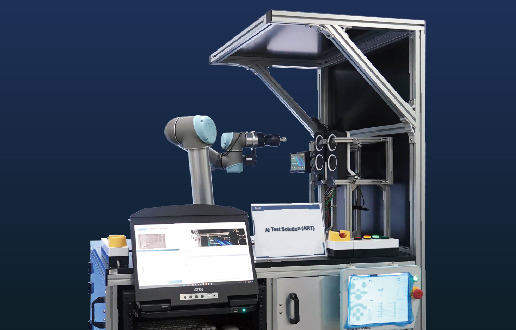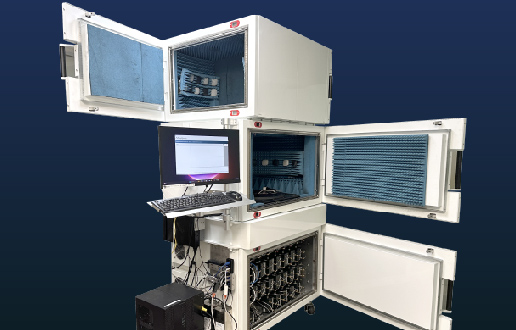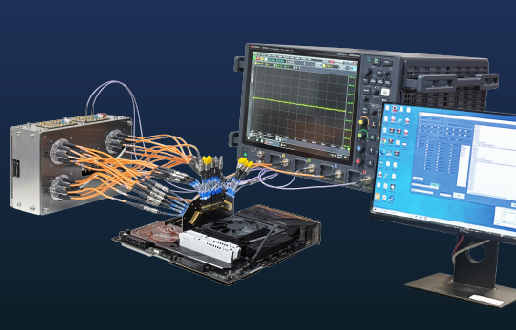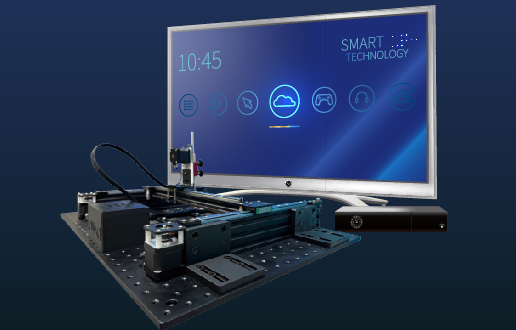Allion Labs
With the rapid growth of cloud computing and cloud storage, network service providers’ demand for servers is also increasing. Cloud service providers must continue to build more data centers to meet the hardware requirements for information access. Generally, data centers usually use general-purpose servers, but large-scale data centers will spend lots of money designing and planning server specifications by themselves. Facebook (now Meta) proposed the Open Compute Project (OCP) when they established a data center in April 2011, and they designed new open-source data centers and servers. Major companies including Google, Microsoft, Intel, Dell, and local server manufacturers in Taiwan also joined in one after another. Now, this framework has been adopted internationally and has become mainstream.
Facebook created this project to attract more manufacturers to develop, design, and maintain data centers by publicly displaying their software and hardware design, which improves efficiency, reduces power consumption, and enhances server performance. At the same time, Facebook set a standard for large-scale data centers and provided the technology needed for the cloud service industry.
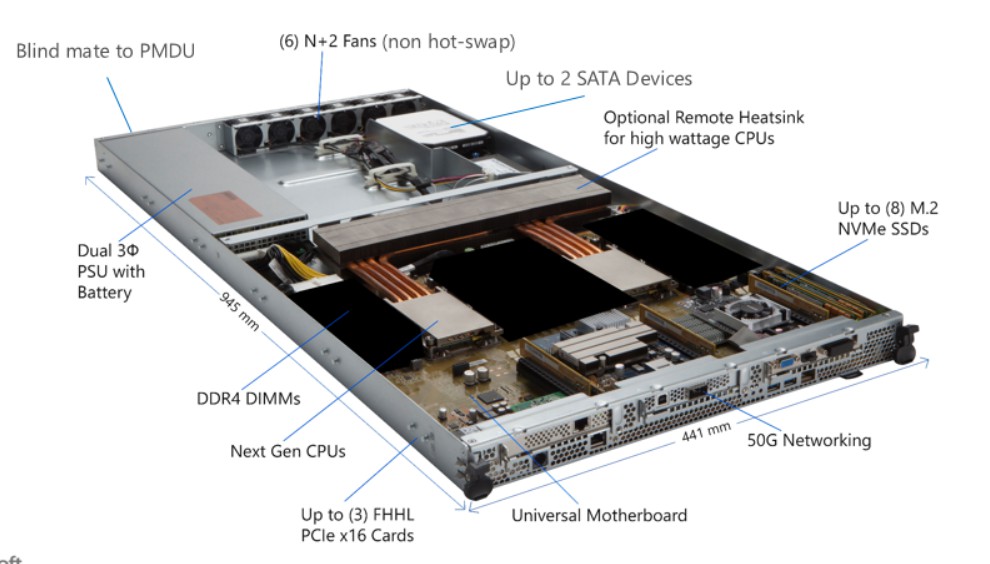
Presently, the OCP mainly develops open-source technologies including storage, servers, rack & power, cooling environments, data center facilities, hardware management, networking, and other categories. Each category contains content about component specifications. For example, for storage components, the OCP has an NVMe Cloud SSD Specification book for NVMe SSDs, detailing what specifications are required to be purchased by the OCP (the mainstream standard is currently OCP 1.0/1.0a.). Some of the specifications listed in the image below can be found on the OCP official website. From the specification documents, you can see how the OCP tailors the environment to the SSD product. There are many specifications and they are very complicated, so an OCP compliance test is a standard procedure to ensure your products meet the OCP specification.
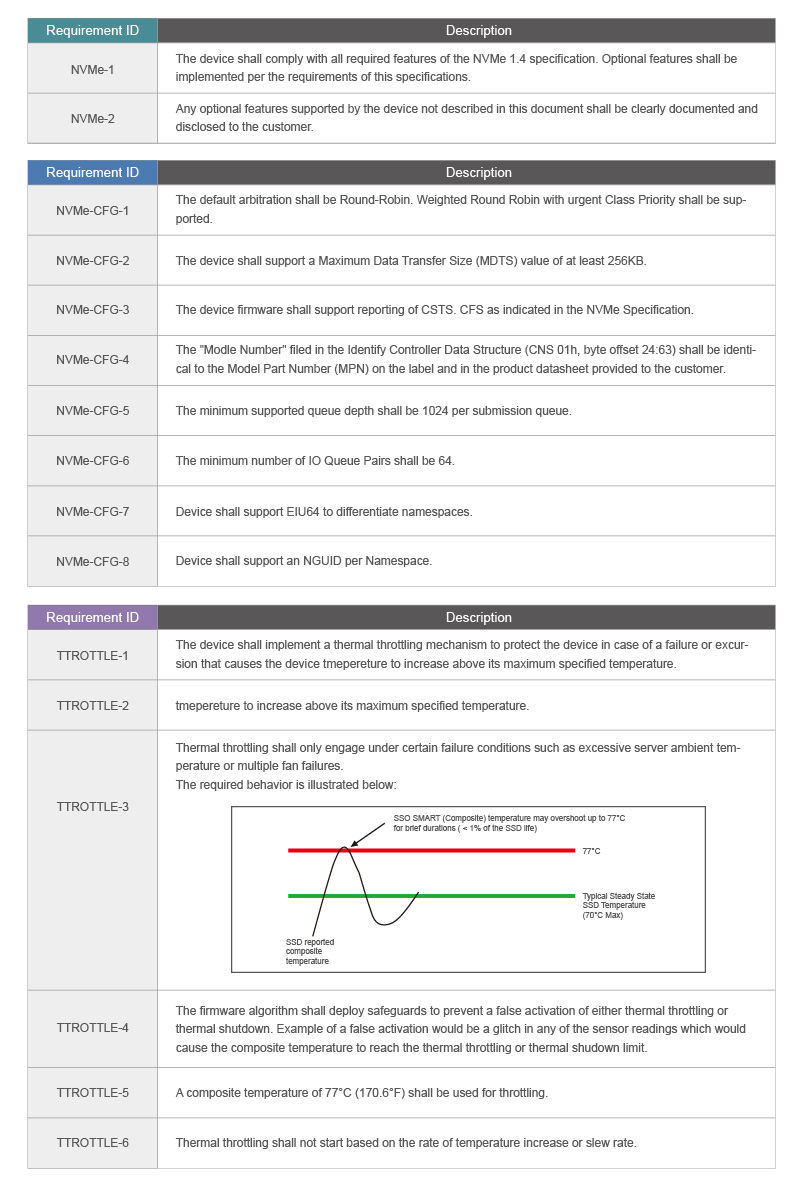
Compliance tests include NVMe tests, form factor tests, SMBus tests, security tests, endurance tests、thermal tests, labeling tests, endurance tests, PCIe tests, reliability tests, and more.
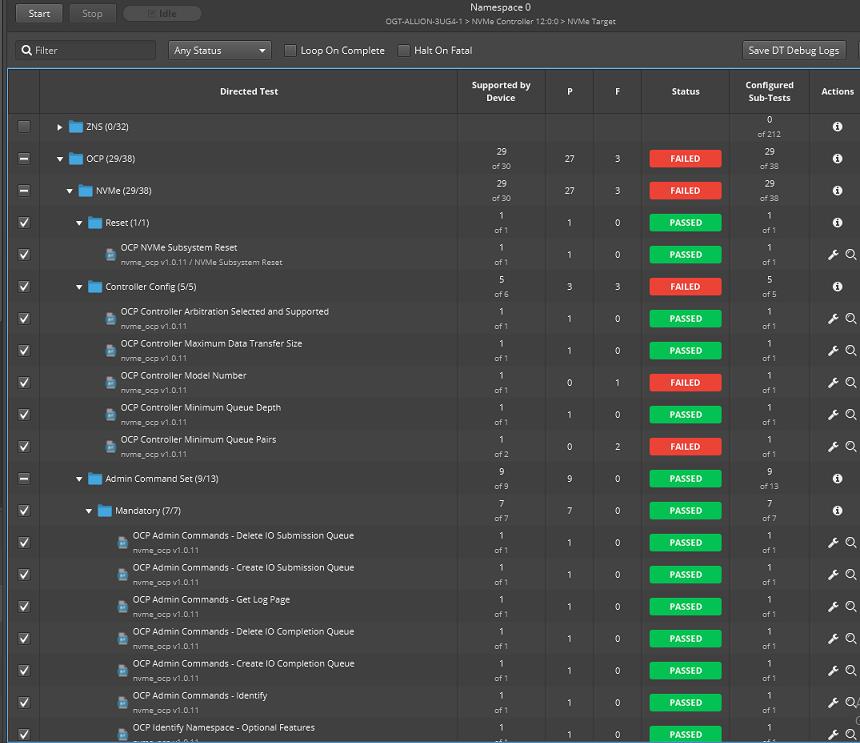
Allion has a complete server test environment set up, and we are also actively preparing for the OCP SSD compliance verification by planning to import OCP compliance test equipment and test scripts. With Allion’s professional testing verifications and solutions, you can discover potential problems in your product in the early stages. Problems you find can also be used as an important basis for future revisions and updates. For more questions about certification or testing, please contact Allion.
























